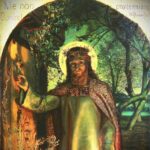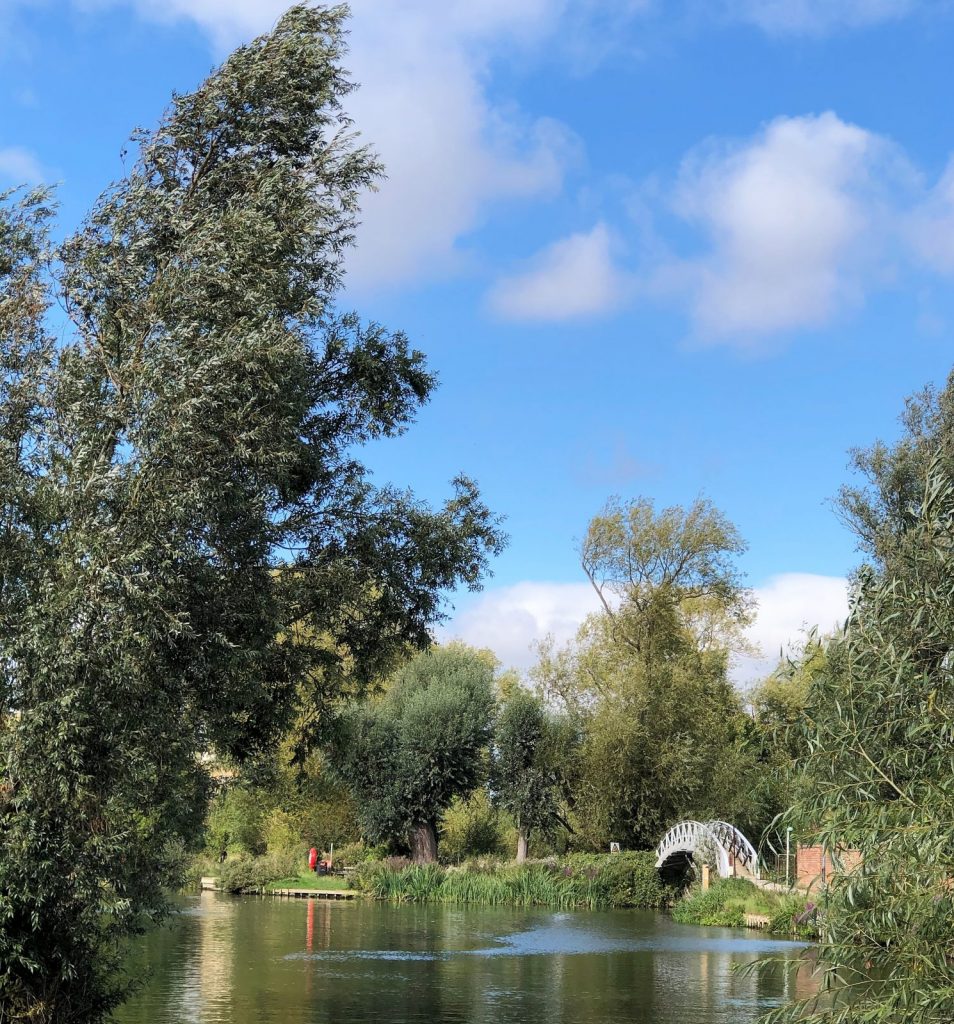
So Matthew records: Then Jesus got into the boat and his disciples followed him. Suddenly a furious storm came up on the lake, so that the waves swept over the boat. But Jesus was sleeping. The disciples went and woke him, saying, “Lord, save us! We’re going to drown!”
He replied, “You of little faith, why are you so afraid?” Then he got up and rebuked the winds and the waves, and it was completely calm.
The men were amazed and asked, “What kind of man is this? Even the winds and the waves obey him!” Matthew 8: 23-27.
So Jesus, a charismatic carpenter, keeps teaching Peter, a fisherman,
a man of the sea, the same lesson, again and again. That he, Jesus,
knew the absolute best way to do everything. Including–fishing.
When Peter had laboured all night and caught nothing, Jesus
tells him to cast his nets on the right side and they were
unable to haul in the bountiful catch. Jesus walked on the
waters of a lake, and calmed sea-storms which raged while
he slept in the boat. He showed off his mastery over their
profession, showing that the very cleverest thing they could do,
always, was to check in with him for his guidance and direction.
When we feel hard-pressed and incompetent, we desperately ask Jesus
for help. And he can graciously add a one before our zeroes.
However, when we feel competent, educated, experienced, or gifted,
it’s even more crucial to not rely on these limited gifts, but to ask Jesus
to take the wheel, to show us the best way to do things and to bless
them. Then he can add zeroes after our one talent, transforming it
into something with exponential blessing for us and for the world.
Avoid the folly of doing anything without checking in
with Jesus. Keep asking: “Jesus, do I need to be doing this
at all?” And: “Please, show me the best way to do it.”
In the most successful thing I’ve ever done, co-founding
a small business which has wholly supported our family
for the last thirteen years, I’ve had to rely on God’s guidance
because I had lacked the training, education, skills, or temperament
for it. And God added a 1 before my zeroes, and blessed it.
Conversely, I have been relatively unsuccessful in the one thing
I had the education, training, some talent and a deep love for–
that is, writing–because I have done it in my own strength, often without
even thinking of asking God for guidance or direction. And without
surrender. But since God is still writing the story of my life, it’s not too
late to train myself to ask God for guidance, and blessing on my writing.
God gives us gifts of good genes, education, opportunity or resources.
But everything we have is God’s, and things can change in a moment.
So the safest thing we can do is to surrender everything we have to God, and
to continually ask him how to do things his way, so He can supernaturally,
exponentially touch, bless and multiply the work of our hands.
If you’d like to read my previous recorded meditations, they are here.
I would love you to read my memoir, fruit of much “blood, sweat, toil and tears.”
Rosaries, Reading, Secrets: A Catholic Childhood in India in the UK, and in the US, here, well, and widely available, online, worldwide 🙂
If you’d like to follow these meditations the moment they appear, please subscribe to Christian Meditation with Anita Mathias at Apple Podcasts, Spotify or
Amazon Music or Audible. And I would be very grateful for reviews and ratings!!




 So, after Paul the Apostle’s lightning bolt encounter with the Risen Christ on the road to Damascus, he went into the desert, he tells us…
So, after Paul the Apostle’s lightning bolt encounter with the Risen Christ on the road to Damascus, he went into the desert, he tells us…




 So, over the last two weeks, life, as I knew it, has been unrecognisably altered.
So, over the last two weeks, life, as I knew it, has been unrecognisably altered.
 I’m reading Sarah Bessey’s “Miracles and Other Reasonable Things” sent me by her publisher for review.
I’m reading Sarah Bessey’s “Miracles and Other Reasonable Things” sent me by her publisher for review.





